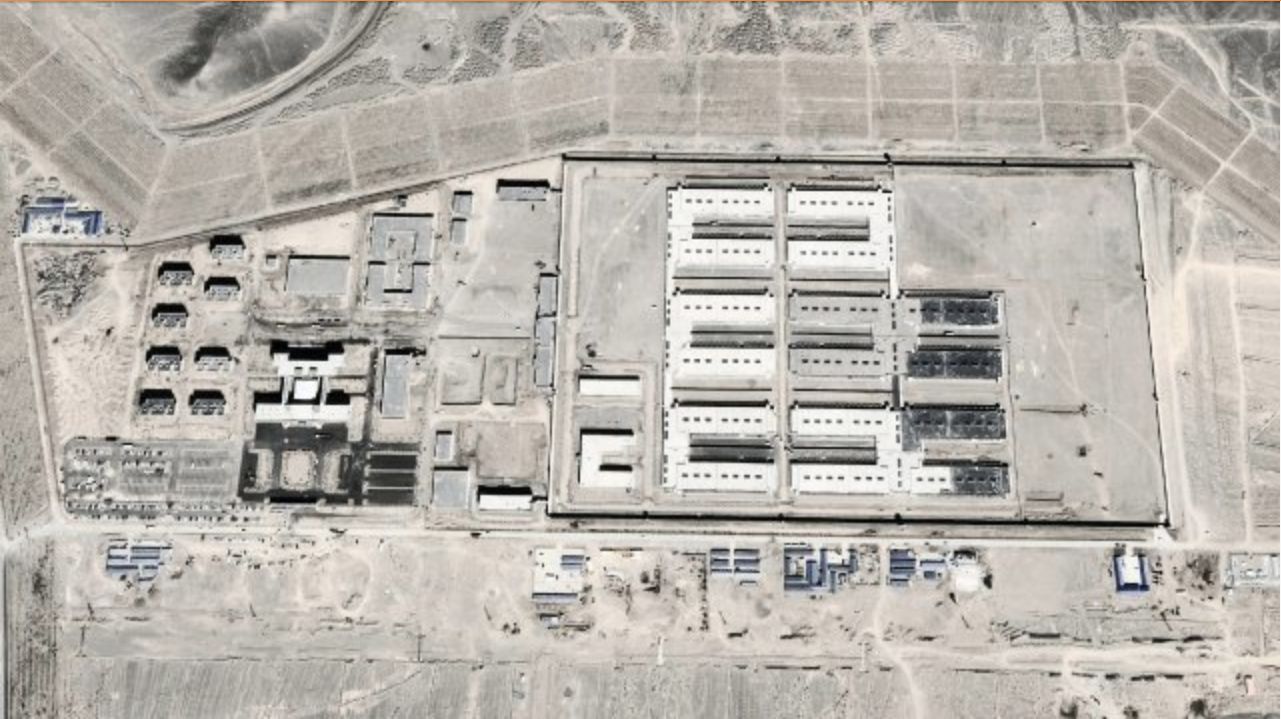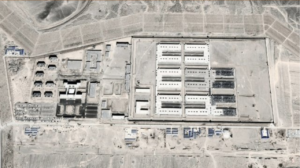China’s War on Terror

The Media Project, 13 January 2019
 By Dr. Robert Carle In April 2017, the new governor of China’s Xinjiang Uighur Autonomous Region, Chen Quanguo, began vastly expanding internment facilities built for Muslim “extremists.” Under Secretary Chen’s leadership, one million people, or about ten percent of China’s Uighur population, have been incarcerated in a growing number of “political re-education” camps, according to U.S. officials and U.N. experts. Orphanages are being constructed to house the children of detainees. Some of these children are deported to facilities in Eastern China, where their Uighur identities will be erased.
By Dr. Robert Carle In April 2017, the new governor of China’s Xinjiang Uighur Autonomous Region, Chen Quanguo, began vastly expanding internment facilities built for Muslim “extremists.” Under Secretary Chen’s leadership, one million people, or about ten percent of China’s Uighur population, have been incarcerated in a growing number of “political re-education” camps, according to U.S. officials and U.N. experts. Orphanages are being constructed to house the children of detainees. Some of these children are deported to facilities in Eastern China, where their Uighur identities will be erased.
Satellite images show that Xinjiang’s thirty-one camps were greatly enlarged in the last year, and they now encompass more than 2 million square meters. These camps function as prisons, with walls, security fences, barbed wire, watchtowers, and monitoring systems. The U.S. Congressional-Executive Commission on China describes the camps as “the largest mass incarceration of a minority population in the world today.”
Former inmates have reported that while in detention they were forced to recite Communist Party propaganda for hours each day. They were pressured to criticize their Islamic beliefs and those of their family members. Some inmates were forced to drink alcohol and eat pork.
The Washington Post published an account from Kayrat Samarkand, who was detained in one of the camps for three months. The thirty-year-old was housed in a dormitory with fourteen other men. The day began with several hours of political indoctrination. In the afternoons, inmates were required to sing communist songs, chant “Long Live Xi Jinping,” and do military-style training. Those who disobeyed the rules were waterboarded or strapped in agony in a metal device called a “tiger chair,” Samarkand said.
In Xinjiang, heightened police presence and monitoring have accompanied the expansion of camps.
In 2016 and 2017, local authorities recruited over 90,000 police officers – twice as many as they recruited in the seven previous years. In 2017, Xinjiang, with 1.5 percent of China’s population, had twenty-one percent of all arrests.
Xinjiang is today perhaps the most heavily monitored place in the world. Ubiquitous video cameras identify faces and record movements. At multiple checkpoints, police officers scan ID cards, eyes, and the contents of cell phones. Customers at gas stations must swipe ID cards and stare into a camera.
Government authorities download Uighurs’ personal information, along with their biometric data, into a database tied to ID numbers. Security forces use all this data to rank people as “safe,” “normal” or “unsafe.”
Human Rights Watch reports that Chinese officials routinely move into Uighur homes in Xinjiang in “homestays.” During these visits, unwilling families are forced to tell their “guests” about their religious and political views, and they are subjected to indoctrination.
The Communist Party in Xinjiang has instituted a ban on Muslim names for babies. It bans veils and long beards. Muslim store owners must sell alcohol. “The state’s proclaimed ‘war on terror’ in the region is increasingly turning into a war on religion, ethnic languages, and other expressions of ethnic identity,” wrote Adrian Zenz of the European School of Culture and Theology in Korntal, Germany.
China’s crackdown in Xinjiang was prompted by a series of attacks on Han Chinese that stunned and terrified Chinese Communist officials. In 2009, a protest in Urumqi over the killing of two Uighurs in Guangdong province led to rioting in which “marauding gangs” of Uighur men beat, slashed, and knifed Han Chinese. Security forces quickly locked down the city, but not in time to prevent 200 deaths and 2,000 injuries.
In 2013, a Uighur family drove an SUV through crowds in Tiananmen square, killing two tourists and injuring thirty people. In 2014, a group of eight black-clad, knife-wielding Uighur men and women stabbed 31 people to death in the Kunming train station. Two months later, two cars sped into a busy street market in Urumqi, killing dozens.
In June 2015, at least eighteen people died when ethnic Uighurs attacked police with knives and bombs at a checkpoint in Kashgar. In September 2015, knife-wielding Uighur separatists killed at least fifty Han Chinese in an attack at a coal mine in Xinjiang.
In response to these attacks, President Xi appointed Chen Quanguo as Communist Party Secretary in Xinjiang in August 2016. Secretary Chen had organized China’s draconian program of surveillance, secularization, and sinicization in Tibet. The Chinese government claims that its crackdown in Xinjiang has stopped terrorist activity. This is impossible to verify because Chinese media no longer reports attacks in Xinjiang.
The Chinese government first denied the existence of its detention centers in Xinjiang. When confronted with satellite photos at the United Nations in August 2018, Chinese representatives claimed that its camps were for the “assistance and education” of minor criminals. In October 2018, the Chinese government formally legalized the “education camps” for the purpose of “eradicating extremism.” An official in Xinjiang called the detention centers “boarding schools.”
Editorials in the People’s Daily insist that Xinjiang’s “training centers” bring “civilization” to the region.
“How can it be fine to kill terrorists with missiles and drones,” columnist Ai Jun writes, “but a humanitarian crisis when China attempts to turn them into normal people?”
As Secretary Chen cracks down in Xinjiang, President Xi is promoting the province as the gateway to his much celebrated “One Belt, One Road” initiative. “One Belt One Road” is investing a trillion dollars in development loans and infrastructure projects in Eurasia and the Middle East in order to secure China’s political and economic supremacy in Asia.
It is puzzling that Muslim governments have raised almost no objections to Chinese Communist Party directives that separate Muslim parents from their children, prohibit Islamic baby names, and ban beards, veils, and fasting during Ramadan. Nowhere in the Muslim world has China’s attacks on Islam generated the kind of street protests that we have seen aimed at the West for trivial insults to the faith.
For now, Chinese money and investments seem to have bought Muslim compliance. Beijing has also cut clever deals with Islamist groups in Pakistan and Afghanistan. Beijing will leave these groups alone if they will leave Xinjiang alone. It is hard to know how long this peace is going to hold. As China continues to pursue its war on Islam, China could well replace the United States as the new Great Satan.
As a Pakistani Sinologist in Islamabad warned, “China has a good understanding of almost everything in Pakistan, political, security, and economic . . . but there is one piece that they just don’t get: Islam.”
https://themediaproject.org/news/2019/1/13/chinas-war-on-terror

